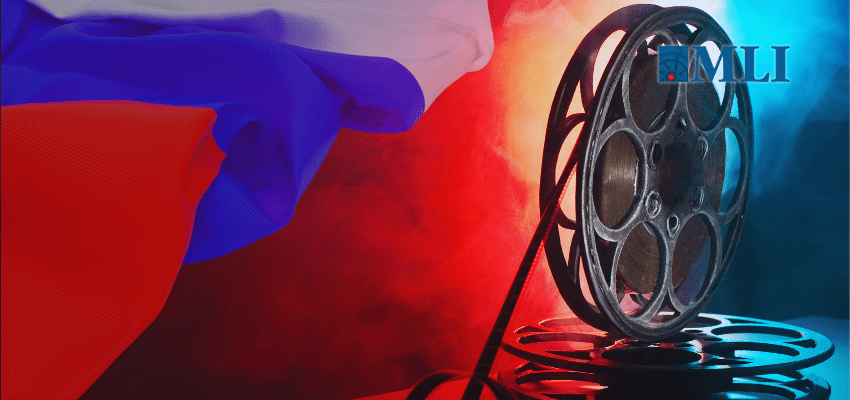This article originally appeared in the National Post.
By Chris Alexander, September 27, 2024
Ukrainians have a painful history of seeing their basic needs ignored.
The 1917-20 allied intervention in Russia failed to defend Ukrainian self-determination. The New York Times downplayed Joseph Stalin’s 1932-33 Holodomor famine-genocide in which millions died. The 1995 Budapest Memorandum saw Ukraine give up its nuclear arsenal without security guarantees. Even today, German and American allies are limiting Ukraine’s right to self-defence by denying it airpower and prohibiting long-range strikes deep within Russia.
Closer to home, many ignored Ukrainian concerns about a film screened at this year’s Toronto International Film Festival.
In a column about Anastasia Trofimova’s documentary “Russians at War,” Chris Selley asks, “Why is Russian or Chinese or Israeli or Palestinian propaganda apparently so much more serious an issue than the high-test bull-crap Canadian politicians feed us every day?”
In other words, why should we care about a film Ukrainians consider to be propaganda when our political debate is already degraded in so many ways?
The short answer is that propaganda is neither free speech nor political hot air: it is rhetorical coercion calculated to steer opinion, by manipulation and omission, into dead ends — impasses that, in Ukraine’s case, cost lives. By larding debate with bias and falsehoods, disinformation and propaganda corrode democracy — and have done for over a decade, as Freedom House, the Foundation for Defence of Democracies and the Economist Democracy Index all report.
According to Jakub Kalensky of the European Centre of Excellence for Countering Hybrid Threats, one of the world’s leading authorities in this field, Russia generates about 60 per cent of disinformation worldwide — and 80 per cent in Europe.
For a long time, we did very little about 21st-century Russian propaganda or the influence it has bought over parliaments, governments, media and public opinion in the G7 and beyond.
Real action started only when Russia launched its full-scale invasion of Ukraine in 2022. Sanctioned by Canada and others, Russia Today (RT) and other propaganda outlets disappeared from our cable packages. More recently, Meta and Alphabet removed RT from major platforms like Facebook, Instagram and YouTube.
This is not censorship: RT and Russia Today Documentaries (RTD) websites are still available to all who, like Selley, wish to “decide for themselves.”
Earlier this month, Canada, the United Kingdom and the United States went further. Following Department of Justice indictments of two RT employees who were paying content creators to produce Trump- and Russia-friendly content, the State Department detailed their reasons for “taking action against (RT) for their covert influence activities.”
In a parallel announcement, Global Affairs Canada stated that “Russia is using non-traditional assets, including state media, to sow disruption and support its hostile activities on an international scale, including in Canada.” Canadian Foreign Minister Mélanie made a corresponding statement: “RT has become actively engaged in Russia’s global disinformation and influence efforts by acting as an extension of Russian intelligence services.”
A U.K. Foreign, Commonwealth and Development Office spokesperson added that “Alongside its public lies and disinformation RT has also used proxy outlets under the guise of independent media to disseminate false pro-Kremlin narratives.”
A strong case can be made that Trofimova’s “Russians at War” was such a proxy. With the plug pulled on cable and YouTube, Moscow’s spy-propagandists would naturally turn to film festivals next.
Consider these facts. Trofimova spent six years making films for RTD. She entered occupied parts of Ukraine illegally to interview Russian soldiers and claims to have seen no war crimes. She says a Russian commander was aware of her presence, but she had no state authorization. Moreover, Trofimova believes Russia’s 2014 invasion of Ukraine was not illegal but rather a “civil war” started by “separatist rebels in Eastern Ukraine.”
To informed observers, Trofimova’s claims about her time in occupied Ukraine are not credible. At the very least, she holds views Kremlin propaganda has been pushing for a decade.
Out of the 15 or so reviews I’ve read that agree her film was deeply problematic, my favourite comment came from Ksenia Gapchenko, a Berlin-based Russian-Ukrainian filmmaker and producer who left Russia in 2003: “The harmfulness of the film lies in the fact that the author, by every means available, practically forces the viewer to understand and forgive the Russian soldiers. The author victimizes the criminals.”
Others agree: following in TVO’s footsteps, French public broadcaster Arte have dropped the documentary from their programming.
Trofimova is at least clear: in the dark tradition of Soviet agitprop, she is advocating for “both sides-ism” — a brand of thinking designed to engender paralysis.
As she put it in a recent interview, “If you choose a side, you are for the war. You are for the war either on this side or on the other side. And I’m for peace.”
Moscow imposed such a “peace” on Chechnya and Syria — by brutal war and genocide. In advocating outcomes that do not include Russia’s full military defeat or accountability for Russian criminals, Trofimova’s allies range from free-speech absolutists to socialists like Jeremy Corbyn and Noam Chomsky.
Most Canadians do support Ukraine, believe fully in the right to collective self-defence and want to see Ukrainian sovereignty fully restored. If we can wrestle free of the active measures Moscow uses to disorient us, we may yet make Ukraine’s victory a reality.
Chris Alexander was Canada’s parliamentary secretary for national defence and minister of citizenship and immigration and is a Senior Fellow at the Macdonald-Laurier Institute.






